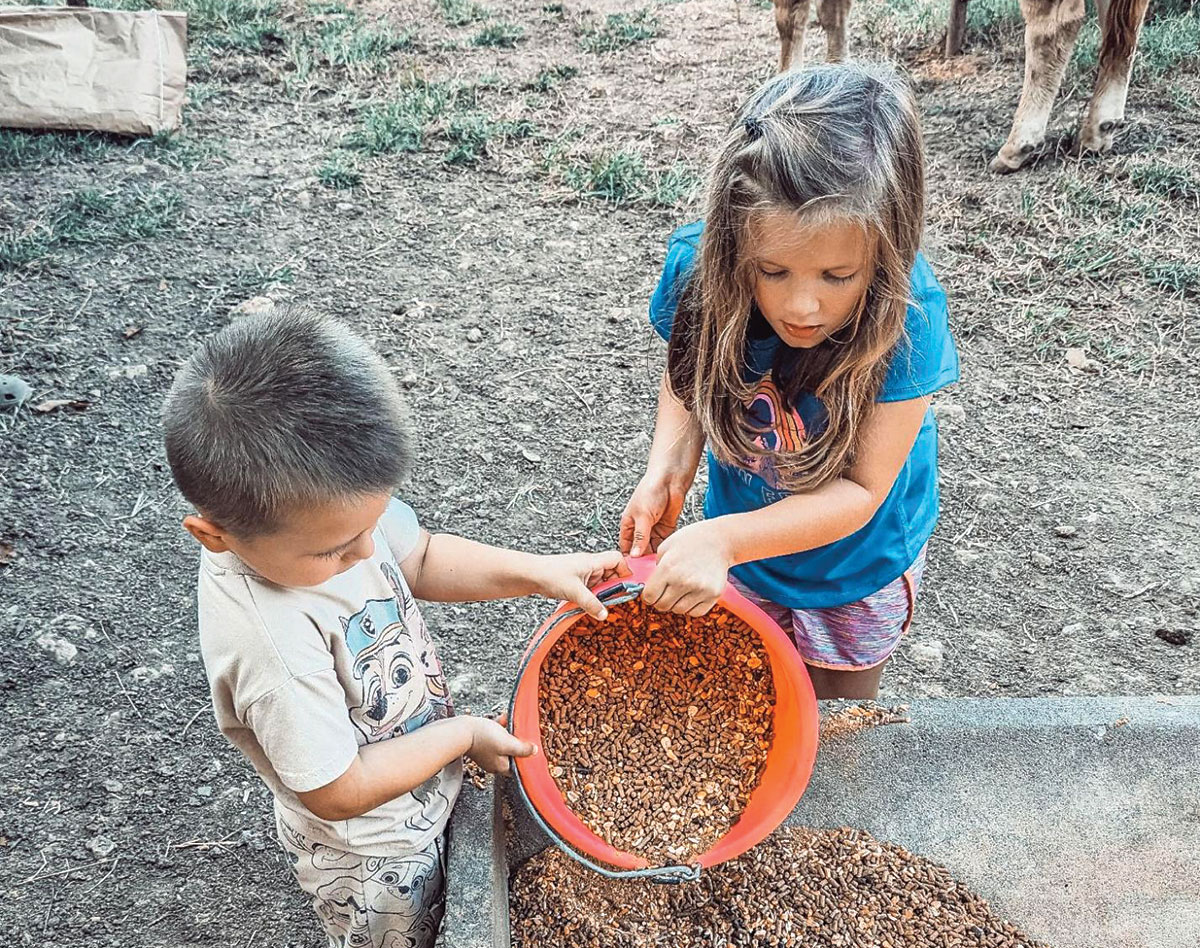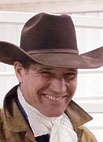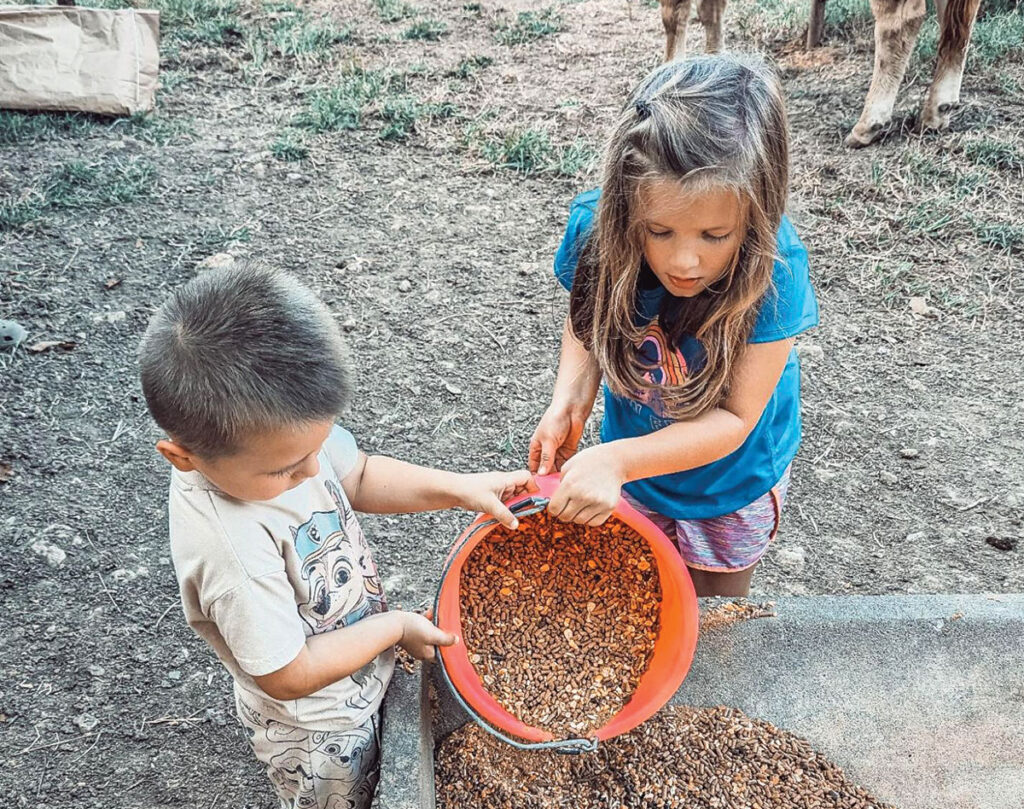
Couple begins farm-raised beef operation to offer affordable options to their community
MOUNT JUDEA, ARK. – In 2018, Dustin, Kayla, and their daughter Laudry Jo Cowell moved to Mount Judea, Ark., where they began their cattle operation, Cowbell Ranch.
For Kayla and Dustin, moving to Mount Judea allowed them to expand their farming endeavors.
“Dustin and I grew up on small family farms, so we knew we wanted to continue that tradition. When we moved to Mount Judea, we purchased a herd from Dustin’s grandpa,” Kayla explained. “We unofficially began Cowbell Ranch as a traditional cow/calf operation.”
Dustin’s sister, Emily Wesselhoft, her husband Jared, and their two kids, Hudson and Jackson, helped establish and continue Cowbell Ranch operations.
As their business began to take root, so did the purpose of their cattle operation.
“We have lived in Newton County for most of our lives and love our people and where we live,” Kayla said. “We wanted to use our business to be involved in our county – to share our faith, our love for agriculture, and our communities.”
Soon, their purpose changed to providing quality, locally sourced, farm-to-table Angus beef products.
“We noticed very few options (if any) for quality and affordable beef in our communities,” Kayla said. “So, after some research and prayer, we decided to transition our ranch from a cow/calf operation to farm-to-table beef production.”
With this transition, they have become an asset for locally sourced beef to the community they call home.
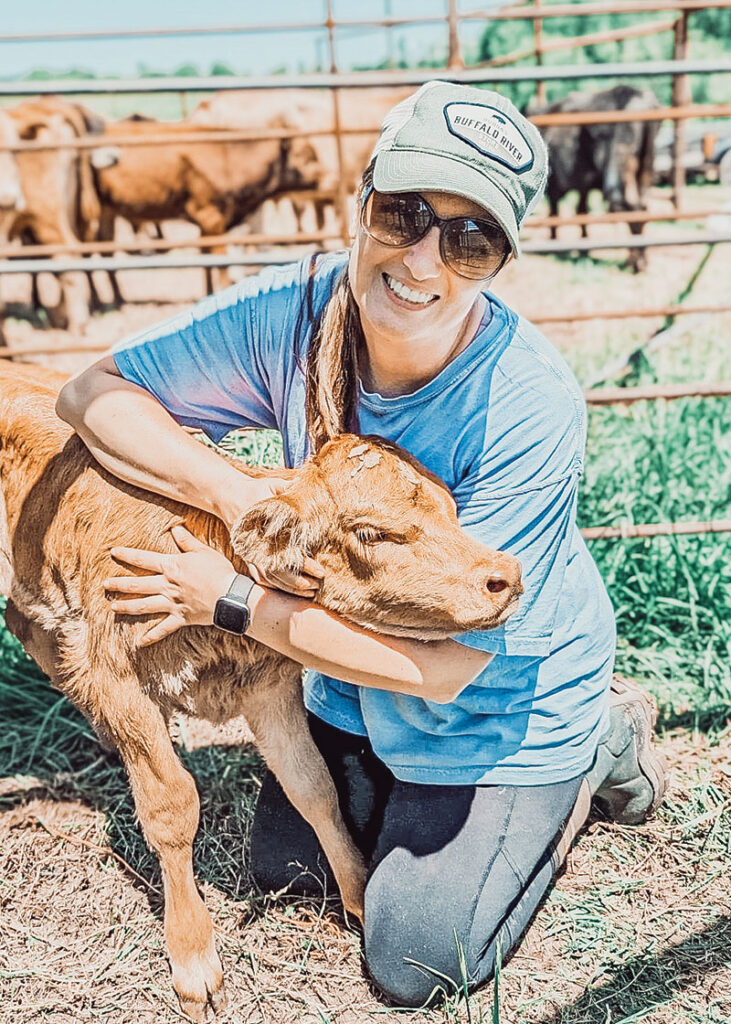
“Our operation focuses almost entirely on direct meat sales,” Kayla said.
Cowbell Ranch Beef can be purchased in bulk (half or whole) or per retail cut (steaks, roasts, ground beef packages, etcetera). Many local stores carry their beef as well.
“We have predominantly Angus cattle. Our bulls are Angus, and our cows are an Angus cross with Hereford and Charolais,” Kayla explained.
They recently added a Charolais/Wagyu cross to their herd.
“Charolais offers the meat texture that American consumers are used to and a quicker finish/growth,” Kayla said. “Waygu offers more marbling, tenderness, and a more robust flavor within the meat.”
Adding a Charolais/Wagyu cross provided even more variety and quality product choices for the locals.
With their operation consisting of three bulls, 45 cow/calf pairs and 24 feeders, the Cowells have brought an resource for locally sourced, family-owned, and operated beef products to their community.
Switching from a traditional cow/calf operation to farm-to-table meant many changes to the feeding and pasture management practices implemented within Cowbell Ranch.
The Cowells sectioned their feeder cattle into groups – small growth, medium growth and finishing. All groups always have access to fresh pasture, but each group has a feeding regimen.
First, the small growth group contains calves still paired with their mothers on pasture.
The medium growth group contains calves around 6 to 8 months of age, which are pasture-based and slowly receive grain.
Finally, the finishing group contains calves around 12 to 14 months, which receive full grain, but remain on pasture.
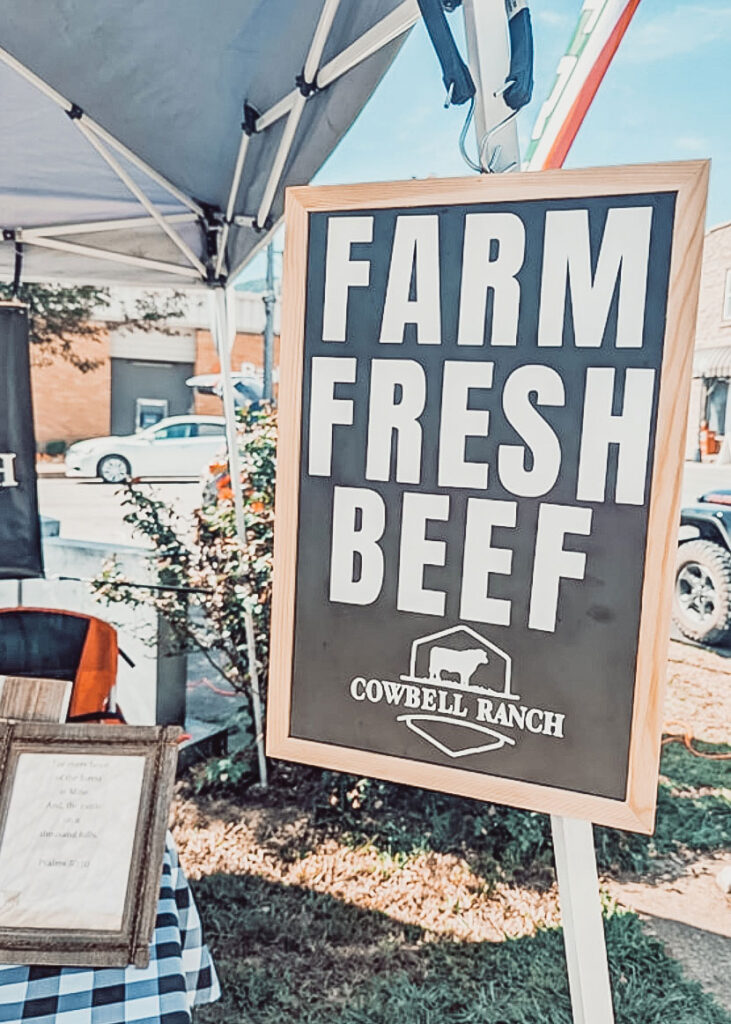
Their pasture management style has yielded excellent results within the past few years for their operation through regenerative practices.
“We currently utilize a combination of high-density grazing and rotational grazing,” Kayla said. “By doing so, we’ve eliminated commercial fertilizer and spray and reduced the number of times a brush hog is needed. We’ve also drastically reduced our need for hay with this program.”
Despite the drastic reduction in hay consumption for their operation, Dustin and Kayla still use their hay by selling it to others.
Even with their change in feeding and pasture management, this has yet to discount the usage of natural cover within their herd.
“With our operation, it’s necessary to have calves throughout the year to accommodate different finishing times,” Kayla said of the breeding program.
Cowbell Ranch also implements a well-rounded animal welfare and health protocol. In the interest of animal welfare, the Cowells vaccinate and worm their breeding herd. They receive a 7-way vaccination, as well as a wormer. However, feeder cattle only receive one initial vaccination when they are born.
As for genetics, the family wants cattle that finish quickly, bulls that have smaller calves and females that have no calving issues.
Cowbell Ranch is on Facebook and TikTok, where they share about their faith, family, and farm fresh beef products.
“We love providing a service to our communities, showing our kiddos the importance of agriculture, and loving our neighbors.”

